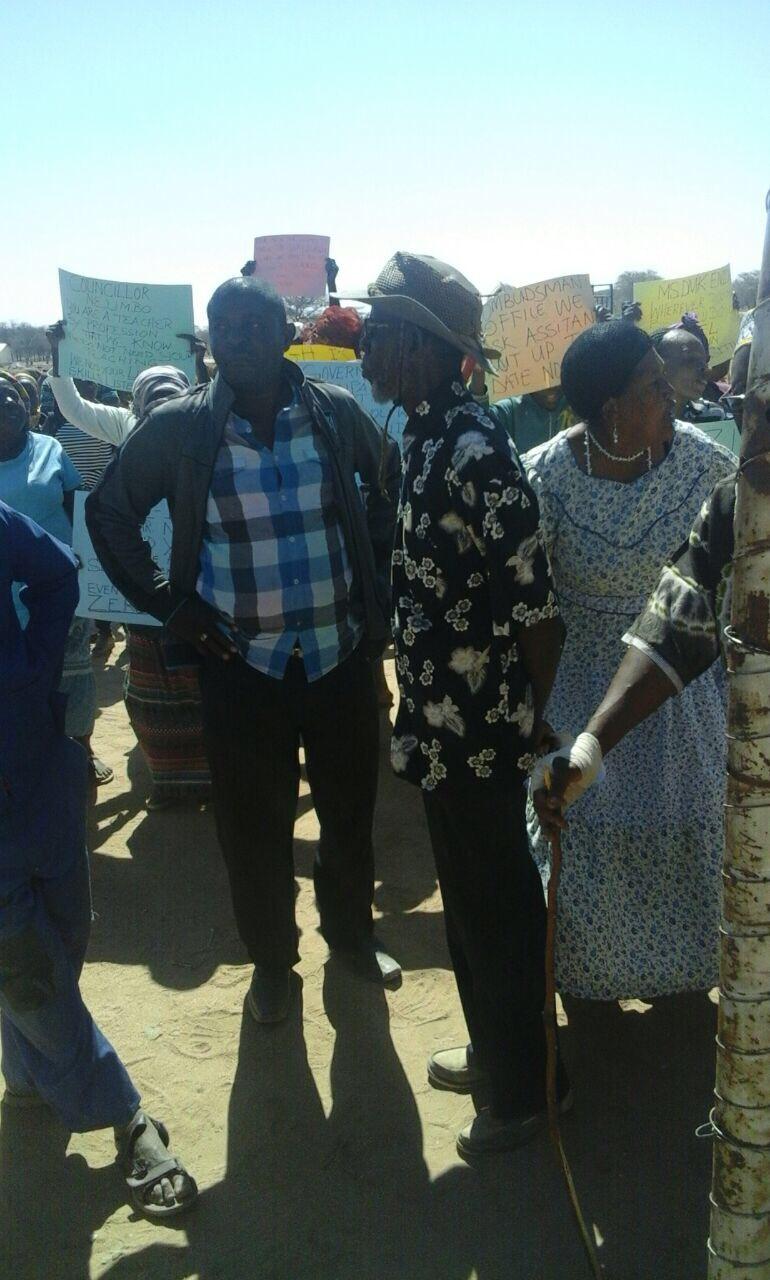Kalkfeld farmers demand grazing rights
Livestock owners at Kalkfeld staged a demonstration at their settlement on Wednesday in a desperate bid to plead with the government for temporary grazing rights on one of three state-owned farms in the area.
“We, Kalkfeld communal farmers, appeal to the authority to recognise the legitimacy of our plight, hurt and outcry,” a petition handed to the Otjozondjupa Regional Council read.
The petition, supported by roughly 50 communal farmers in the area, who walked through the settlement accompanied by many of their livestock, demanded that the government assist the community in tackling the worsening conditions in the area.
The statement highlighted “years of neglect” by government of the small community and asked that officials assist “without delay” in authorising grazing rights on one of three state-owned farms situated near Kalkfeld.
But a lands ministry official warned that similar goodwill gestures by the ministry had backfired in the past, when temporary tenants refused to vacate resettlement farms once grazing had recovered.
The grazing land available to communal farmers at the Kalkfeld settlement had become a “wasteland”, local community activist and Kalkfeld Settlement Development Committee representative Kennedy Urib told Namibian Sun last month.
He said farmers were trekking dozens of kilometres each day in order to provide at least some grazing to their animals, whose physical condition was declining rapidly.
Urib this week explained that the government’s recent purchase of three farms near the settlement had inspired the proposed solution to the community’s critical grazing problems.
Despite alleged shoulder shrugging from local politicians, several of whom had “washed their hands” of their problem, Urib said the community’s demonstration today is an urgent cry for help to save their livestock.
However, Ministry of Land Reform spokesperson Chrispin Matongela warned that the ministry would tread carefully when considering such a request.
“I understand their plight, but on the other hand we have to be careful as a ministry because of the lessons we have learned in the past. People come with good requests, and we think we are helping them, but when the time comes and we ask them to leave, they refuse.
“We have done this with many people, but when the grazing has recovered, and you ask them to leave in order to place the people to whom the farms are allocated, they refuse. Then it becomes a court case,” Matongela said.
He added that the drought and lack of grazing is a countrywide problem and the government cannot help everyone.
“We have tried many ways to get a response. We have sent letters to several government authorities, but we have so far received no response,” Urib said yesterday.
They are demanding temporary grazing for about 500 animals, he said.
Urib explained that selling their livestock was not a viable option.
“This is the only source of income that exists for the community. There is no other work available. We can’t tell them to sell their cattle, so we are just asking for temporary grazing, until the rain returns.”
Last month he said that selling the cattle would bring only temporary relief, until the funds from those sales ran dry.
“And then what will they do? People need money for school fees; it’s the only income for many here.”
He said currently the cattle graze on an estimated 725 hectares available to the community.
The three farms in question include Quelldam, which is divided into two units, and Omurona.
Despite several attempts, Otjozondjupa Governor Otto Ipinge could not be reached for comment yesterday.
JANA-MARI SMITH




Comments
Namibian Sun
No comments have been left on this article